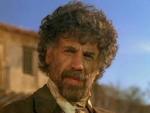Quote
On one, rather shallow level, sure. Why not. But from a structural point of view, no, not really. Reading is education, whether (as a reader) you’re looking for it or not. It’s not just a matter of seeing decent use of grammar, or plot construction, or scene-setting. There’s always more going on. Fiction, at its heart, is an exploration of the human condition, and accordingly, every story is character, and for that reason, characterization is an essential component for both the writer and the reader.
So why is there such disparity of opinion in what constitutes good characterization? My scholarly colleagues might suggest the sparsity of education in how to read literature, and will gleefully, if despairingly, cite examples of appalling illiteracy among their own students (don’t tell anyone, but we in the circle see a lot of that, cue Picard massaging his temples). For myself, I can’t help but be a bit more forgiving. Subtlety is easily lost when no-one’s looking for it.
Princess Lalalala was seventeen years old. Her only sibling was a brother eleven years older. She rarely saw him these days, now that he had ridden off at the head of an army destined for battle against raiders on the North Shore. That said, she’d never known him that well, with such a vast gap of years between them. Their father, King Kruell the Second, now a widower, was a remote man, ageing and disinclined to find yet another wife.
The Princess was blonde, willowy and fair-skinned. She had been tutored in needlework since she was a child and was a musician of middling talent. Somewhere ahead in her life there would be a marriage, politically arranged of course. In that marriage, her singular task would be to produce children, and given the tragic risks of childhood, as many children as possible.
This morning, she sat in the sunlight falling in through the high window of her chambers, pillow on her lap and threaded needle in hand. A gift for her father: a silk profile of his face to match that of every coin in the realm.
On the surface, this sample of writing may seem like characterization. Well, it is and it isn’t. Or rather, it is, just not very good. Yes, some essential information has been conveyed. We learn the social status of the putative protagonist; we get some physical description; we get some details as to her past, present and future. All useful in placing ourselves as readers in the story being told. And we’re invited to share in the potential bleakness of her future as brood-mare. Such are the vagaries of royalty blah blah.
Depending on the story being told, that might be enough, and indeed this opening establishes the precedent that most ‘characterization’ will be bolstered if not entirely supplied by narrative exposition. The trap, of course, should be obvious. By relying almost exclusively on circumstance, the image we acquire is a cliched one. Granted, a good writer can take this and start twisting it out of shape; can work against the precedent established by the narrative style. But the essential point is this: the above sample is not characterization. It is biography.
Let’s try again…
Princess Lalalala found the biggest needle in her sewing kit, rushed over to the half-embroidered pillow, and stabbed the needle repeatedly and savagely into the silken royal profile of her father’s face. Teeth bared, she then flung the pillow at the wall.
From the courtyard below she heard a clatter of horse hooves and, tearing at her hair, she ran to the window. There he was, the tall fair-haired commander, all resplendent in armor and sitting astride his war-horse like some hero from a fairy tale.
It didn’t matter that he was eleven years older than Lalalala. It didn’t matter that he and she had tumbled out of the same mother. She wanted to fuck him senseless. And now he was going away.
“For this, dear father,” she whispered, “for this….”
She spun round and glared at the pillow and that oh-so-perfect profile. A needle wasn’t enough. She went looking for a knife.
Okay, so both of these examples are off-the-cuff. But they serve to illuminate the distinction I want to talk about. It’s a pretty basic one: show don’t tell. And even when you do tell, hide it in other stuff. The first example, as biography, gives virtually nothing as to Lalalala’s state of mind. Its biographical details, while useful, don’t do much else. They’re pretty flat, one-dimensional. Sure, we can infer some stuff, but even that isn’t personal, merely situational. But hey, you can make a thin story pretty fat with that kind of shit, and even more astonishing, some readers will go ‘wow!’ at the characterization.
The first example is 187 words. The second example is 153. Expositional biographical narration is wordy and turgidly paced. Show-don’t-tell is active, terse and implicitly nuanced. When it comes to characterization, it does so much more work for the same word-count (or in this case, even fewer words).
But it requires some work from the reader. The nature of the relationships between daughter, father, sister, brother, are conveyed through action, some dialogue (which is offered as a sentence fragment, inviting the reader to complete her sentiment) and expositional but character-derived statements of intent (‘She wanted to fuck him senseless.”).
Other things happen with this second example, both for the writer and the reader. We’re pulled closer to our protagonist: even the narrative tone ends up complimenting her state of mind. Suddenly, our point-of-view is much closer to Lalalala. Every action, every gesture, becomes an emphatic pronouncement on her inner, tormented, enraged, landscape. But nowhere in the sample are such words used: no ‘enraged.’ No ‘tormented.’ That would be telling. Instead, we as reader see, observe, and then piece it all together.
That requires engagement from that reader, and engagement is what the writer is looking for in their reader. Each and every time, we’re in this together.
Expositional biography in fiction can come across as authoritarian, in every sense of the word. You’re being told, and you’re expected to follow. The author as Master, the reader as needy servant. This makes the story the Master’s story, and the reader’s role is merely privileged, not participatory. And the thing is, some readers want to be led, so there is nothing in that authorial stance that rejects the possibility of immense popularity. Far from it, in fact.
Do I have a judgement in that regard? Only that I wish readers were more discerning. Often, expositional biography passing off as characterization can be lazy writing. When it isn’t lazy writing, then something else is at work (often, the severe emplacement of character ‘roles’ in the story wherein they surrender their humanity to archetypal necessity, aka the evil gang leader, the haughty princess, the depraved priest, and so on. In these instances, the characters aren’t characters as such, simply representative pawns to be toppled one by one in service to some greater purpose).
At its most basic, characterization in fiction is defined as what the character says and does. Depending on the selected point-of-view, it might also include what the character thinks and feels, but to be honest, the reader should get a sense of both based entirely on what the character says and does. Now, one could indeed write a character where both external and internal landscapes are explored in vast detail, and while this may make that character understandable, it has the potential of dragging down the pace, expanding the length, and making you, the reader, want to kill that person. Right now, to put us all out of our misery. Granted, occasionally this degree of intensity and concentration on illuminating everything about a single character can achieve greatness, provided the voice is compelling, and the character is intrinsically fascinating. A lot of contemporary, ‘literary’ fiction takes this route, and a lot of modern poetry dwells entirely within that realm.
But if you were to try to do that for multiple characters in a big, complex, heavily plotted story … well, that’s akin to spending twenty pages on what somebody’s wearing. The reason I have very little hair left on my head is due to a lifetime spent tearing it out while reading that stuff.
Let’s take a step back now and look at something more general which nevertheless has a direct bearing on characterization in fiction. Nature versus nurture. Regard again the two samples I provided earlier. Both present us with the same Princess Lalalala in terms of setting, social status, familial position. Yet their internal landscapes are utterly different. If people were shaped entirely by their upbringing, then siblings would all be pretty much alike. But they aren’t, as any of you with siblings well know. We may be partly shaped by our environment, but something deeper and fundamental clearly comes with the package, and that is our respective natures. What shapes that? Who knows? Not being flippant here. No-one really knows.
What you could draw from the first sample is perhaps the standard princess: a needle-wielding paternal investment in progeny and political power; and in the scene described she comes across as pretty passive, maybe even fatalistic. The tone invites that passivity, because it’s obsessed with biographical details intended to impart Lalalala’s position in the world she lives in, as if that’s the sum total of who she is.
The second sample reveals an entirely different princess, even though the biographical stuff remains the same. Character is not biography. Biography doesn’t even come close to revealing character. It’s just backdrop, a scaffolding of facts. The author needs to know it, of course. But by itself it does not constitute characterization. If you want to understand your character, you need to plumb the depths of her internal world. You need to map that hidden landscape. You need to decide on her nature (or, in the act of writing, discover it).
Bear in mind though that even in nature we are not consistent. The man who smiles sweetly at you every morning as he buys his coffee may go home every night and assume the horrifying role of tyrant over his wife and children. Two entirely different people, but one man. His actions and words may deceive. His external expression of himself to strangers and mere acquaintances is a clever mask, a smoke-screen, hiding his tormented and tormenting inner self.
Critics will write (or say) ‘that character wasn’t consistent,’ and thereby dismiss the writing as bad, the characterization as unbelievable or shoddily done. That critic is an idiot. Memo to critic: nobody’s consistent. Even worse, we may be one way when engaged with one person and completely different with another. We are walking contradictions, implicit hypocrites (‘Evil oil companies! Where’s my car-keys?’), and changeable from one day to the next. We are masters of cognitive dissonance.
So, how does a writer convey any of that? My answer: cagily. As in, be cagey as hell. The less you reveal the more you are free to manipulate. And with each act you describe a character doing or engaged in, ask yourself: is this her true self here? Or just a convenient sham to get through the next five minutes? And it’s all situational, embedded in the scene. She can smile and wink at that handsome guard in the hall, step into her chambers and beat the shit out of her maid.
Characterization is not an isolated creation – not exclusively internal landscape. It’s also about relationships, to other characters, and to the environment and circumstances: this is what makes it so changeable, so malleable, so outwardly unpredictable. And such a blast to write.
And this brings me back to those comments from a reader regarding Kim Stanley Robinson’s novel, New York, 2140 (this refers to a previous post of mine listing my favourite reads of the last couple years). Anyone who’s read this author’s previous works, or knows enough about him to realize he’s been in the game of writing for some time now, could readily assume that he knows what he’s doing, especially when it comes to characterization. You can’t get that successful otherwise (well, okay, you can, but not in this guy’s case). He’s very much of the show-don’t-tell school (and his classic Mars Trilogy, arguably the finest Mars novels ever written, is replete with that approach to characterization). More to the point, he’s a writer very much still in his prime.
But suddenly in his latest novel, according to one reader, his characterization is high school level, juvenile and (presumably) unconvincing.
Okay, so we have an opinion. I’d love to see a deconstructed analysis supporting that assertion. I certainly know that I could, if I chose to, offer up a deconstructed analysis to prove the very opposite: that in this novel there is superb characterization, deftly done, subtle and clever and above all, profoundly compassionate.
New York, 2140 is, much like Mark Helprin’s Winter’s Tale, a love letter to New York City. And ‘love’ is the operative word here: it infuses the entire story, extending to every character in it. There is extraordinary forgiveness in the narrative voice, and from that emerges wonderful generosity of spirit. There is also a tonal, stylistic playfulness to that narrative voice (imagine, employing exclamation marks in exposition! Closely tied to certain characters, sure, but still! Utterly delightful).
As all my online portraits indicate, I’m a man of many smiles. One thing I can say, though, is that I smiled often while reading New York, 2140. In the sheer pleasure of reading, of basking in such an air of forgiveness (he even forgives us the future nightmare of climate change) and compassion, I simply didn’t not want that novel to end. Ever. In fact, if it didn’t ever end, I’d still be there right now, in that wonderful world, and screw all you guys.
But no book reaches everyone. There can be quiet quirks that suddenly derail certain readers. That’s just how it goes, and I have no interest in debating any of that, or even passing judgement on it. Had that reader said something like: ‘the tone of this novel turned me off, and accordingly, even the characterization didn’t work for me,’ I’d have nothing to say to that except: ‘fair enough.’ Or the reader could have said: ‘I’m at the opposite end of the political spectrum from Robinson, so I hated this book,’ that too would be legitimate (sort of, let’s not get too far into that). Instead, we get pronouncements without substantiation.
Sure, I get it. It’s the internet! Unsubstantiated opinion passing off as demonstrable truth is the very fertilizer heaped onto the hungry earth of online discourse, but to extend the metaphor, ye shall reap what ye shall sow. Whatever sprouts up here is fair game, and since this my site, harvest I will.
That said, I have to thank that reader. It was enough to have me take umbrage, get off my skinny butt, and write about characterization. Accordingly, high-five, bud! And for everyone else, no need to go fishing for more by riling me up. I’ve begun this process now and I’ll stay with it. Are we done with characterization? Far from it. Stay tuned.
This post has been edited by Whisperzzzzzzz: 24 November 2017 - 10:45 PM

 Help
Help


















